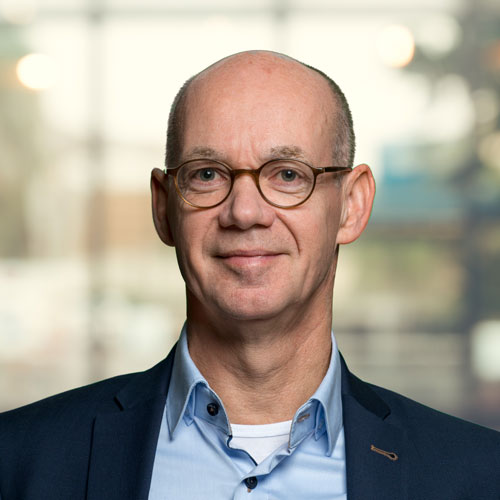
Antoine van der Heijden

Onderzoeksgebied
Het onderzoeksgebied richt zich op innovatieve en geïntensiveerde verwerkingstechnieken die kunnen worden toegepast om (energetische) materialen te modificeren, functioneel te maken en te verwerken. Specifieke onderzoeksonderwerpen zijn onder andere de ontwikkeling van ingekapselde materialen en alternatieve, 'groene' en voor het milieu onschadelijke verbindingen ter vervanging van nu gebruikte toxische bestanddelen; duurzame synthesemethoden die het gebruik van toxische of gevaarlijke uitgangsstoffen voorkomen; reologisch gedrag van samenstellingen met een groot aandeel vaste bestanddelen bij de productie van additieven; verbetering van bestaande verwerkingstechnieken door middel van innovatieve methoden en concepten voor intensivering van processen, bijv. met behulp van externe (elektrische, elektromagnetische, akoestische) velden. Deze onderwerpen bieden de fundamentele input voor verschillende onderzoeksonderwerpen binnen de afdeling Energetische materialen, zoals 3D-printen van (energetische) samenstellingen, kristallisatie van ongevoelige energetische materialen en milieuvriendelijke synthesemethoden.
Belangrijkste publicaties
- A.E.D.M. van der Heijden, Developments and challenges in the manufacturing, characterization and scale-up of energetic nanomaterials – a review, Chemical Engineering Journal 350 (2018) 939-948, 10.1016/j.cej.2018.06.051.
- V. Korede, F. Marques Penha, V. de Munck, L. Stam, T. Dubbeldam, N. Nagalingam, M. Gutta, P. Cui, D. Irimia, A.E.D.M. van der Heijden, H.J.M. Kramer and H.B. Eral, Design and validation of a droplet-based microfluidic system to study non-photochemical laser-induced nucleation of potassium chloride solutions, Crystal Growth & Design 23 (2023) 6067-6080. https://pubs.acs.org/doi/10.1021/acs.cgd.3c00591W.
- Peerbooms, T. Nadorp, A. van der Heijden and W.-P. Breugem, Interparticle friction in sheared dense suspensions: Comparison of the viscous and frictional rheology descriptions, J. Rheol. 68, 263-283 (2024); https://doi.org/10.1122/8.0000729.
Den Haag - Ypenburg
Ypenburgse Boslaan 2
2496 ZA Den Haag
Postadres
Postbus 480
2501 CL Den Haag